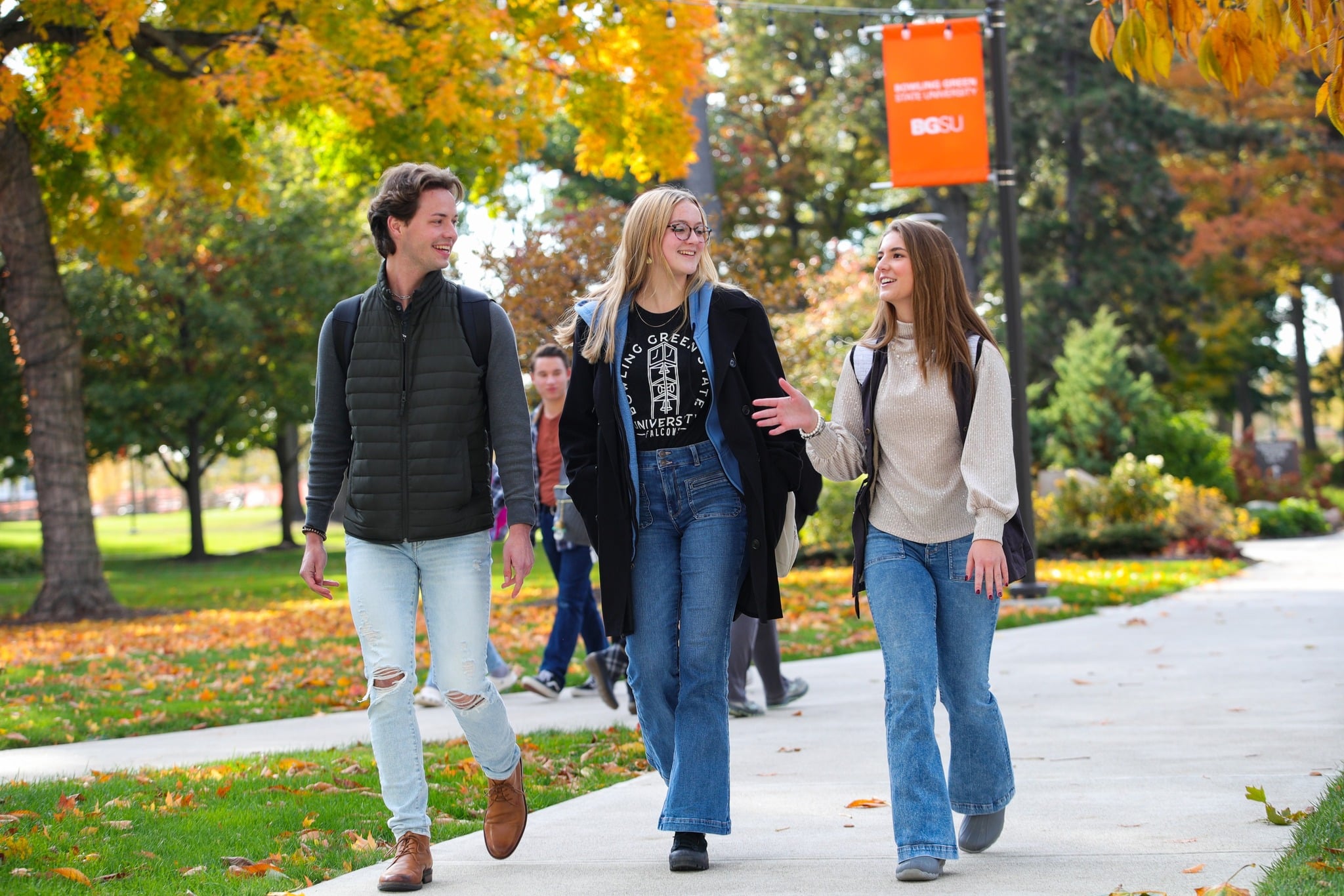Unlike traditional engineering disciplines, Systems Engineering takes a holistic approach to designing and improving complex systems such as manufacturing, logistics, retail service, and healthcare systems. Bowling Green State University’s (BGSU) undergraduate program emphasises engineering design, systems integration, modeling, problem-solving, teamwork, and communication skills to equip you with the knowledge and skills needed to thrive on your first day of employment.
To ensure this, the College of Technology, Architecture and Applied Engineering offers countless opportunities for significant experiential learning, including hands-on laboratory courses, research projects, and industry-based capstone projects.
In fact, the Systems Engineering program requires a co-op/internship experience. The purpose of the co-op/internship experience is to gain working knowledge about a systems engineering occupation’s daily roles and responsibilities. It relates classroom theories with real-world problems and promotes your personal and career development through interaction with a supervisor and team members of the organization.
“I think the College of Technology co-op has done a great job,” enthuses a student. “I love the fact that they make co-op experiences mandatory and feel the resources they have available make it easy for students to find positions to complete their co-ops.”
The Cooperative Education program is affiliated with thousands of regional companies, organizations and agencies. These partnerships have been mutually beneficial and integral in providing valuable work experiences for Systems Engineering students. Many lead directly to jobs upon graduation.

Source: Bowling Green State University, Facebook
You can earn credit for your co-op experiences which apply toward graduation requirements. You’ll even be paid an average hourly rate of US$17.50 per hour. You can complete your co-ops in any semester and anywhere in the world. However you do it, your co-op is set to lead to outstanding outcomes — a whopping 86% of BGSU alumni have reported landing a job on their graduation date, crediting their success to the exposure and connections they gained during their co-op.
“Experiencing the class work in a real-life job environment helps the student understand the benefits of each class,” says another student. “This also helps us take classes more seriously by realizing if we learn the material in class, we will have a head start applying that knowledge to the job field. I think my co-op enhanced my classroom material because I was learning it from a different person besides my instructor.”
Perspectives can be gained throughout the US and beyond. The Systems Engineering program offers Panama as an optional study abroad experience to impart international aspects of system design. The Global Logistics in Panama program provides unique international and cultural exposure to help students better understand global logistics, trade, and supply chain operations through exploring Panamanian businesses. They can also expect to network with Panamanian executives, students, and logistics experts — all while experiencing the beauty of Latin culture.
The Master of Science in Logistics Systems Engineering (MS-LSE) is another BGSU professional degree program that boosts career readiness. Much like the Systems Engineering course, the MS-LSE program unlocks multiple opportunities for experiential learning, including graduate internships, industry projects, and an optional study abroad program. It is one of the few interdisciplinary programs in the US that blends business and engineering skills to help students understand the application of engineering principles in the business world.
Most MS-LSE students pursue a semester-long paid graduate internship, which enables them to gain working knowledge on logistics-related industry projects and enhances their personal and career development through interaction with members of the organization.
During Daniel Ejairu’s graduate internship, he applied knowledge gained from his manufacturing class to help reduce waste in a food production company.
Parvez Shaikh from Bangladesh landed an internship with Whirlpool Corporation, a Fortune 500 company. From day one, Parvez wanted to utilise this opportunity to get real-world experience in logistics.
Shaikh also participated in an industry project funded by Bridgestone, supervised by his professor Dr. Sarder. The project, “Minimizing Import Costs & Improving Supply Chain Performance Through Strategic Sourcing”, found a solution that resulted in over US$5 million in savings for the company.
Meanwhile, Ms. Swati Arora completed an industry project — under the supervision of Dr. Sarder and funded by GSW Manufacturing. In this project, Ms. Arora developed a solution to reduce supply chain lead time and improve supply visibility.
Ready to achieve financial and career success with a B.S. in Systems Engineering degree or a M.S. in Logistics Systems Engineering at Bowling Green State University? Click here to apply.
Follow Bowling Green State University on Facebook, Twitter, Instagram, YouTube, and LinkedIn.













